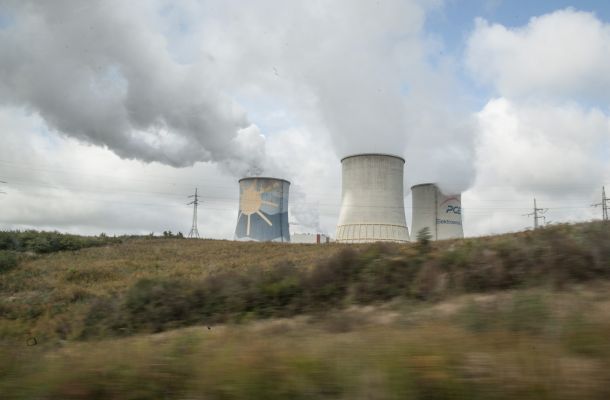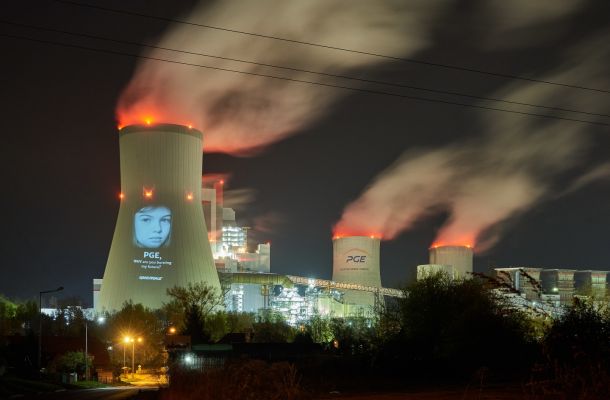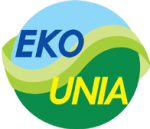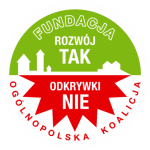Will Poland face the European Court of Justice because of an unprofitable open-cast mine?
The Czech Republic sent a complaint to the European Commission with regards to the expansion of the Polish lignite mine Turów. Such a move makes it possible to file a lawsuit against Poland to the European Court of Justice. In the meantime, a fierce defense of Turów by the miners and by the Polish government does not make economic sense. Experts from Warsaw University of Technology have just proven that it will be cheaper to replace the power plant and the open-cast with a mix of renewable sources.
1. Czechs sue Poland in the case of Turów
On 30 of October 2020, the Minister of Environment and Foreign Affairs of the Czech Republic sent a complaint to the European Commission regarding the expansion of the Polish lignite mine Turów. The Czech authorities are convinced that Poland has failed its obligations as per four European directives and directly as per the Treaty on the Functioning of the EU, in connection with the renewal of mining license and extension permit.
The Czech Republic has decided to make use of the possibility given by the Treaty on the Functioning of the European Union in order to be able to file a direct lawsuit against Poland to the European Court of Justice. Prague will be able to sue Poland in three months, unless a break-through occurs in the information exchange and in the Polish government's and PGE's attitude.
The Czech government started to consider taking legal steps against Poland after March 2020, when, in spite of international protests on part of the Czech Republic and Germany, the Minister of Climate, Michał Kurtyka, extended the lignite mining license for Turów mine by six years. In the opinion of the Czech government, the mine’s activity after 30 of April 2020 is illegal, since the process of extending the mining contains a series of infractions and goes against not only Polish, but also the EU law. Polska Grupa Energetyczna is in process of obtaining a new license until 2044, which would make it possible to mine 289 millions of tons of brown coal.
On the side of the Czech Ministry of Environment, arguments underlying the complaint are cited. First of all, it has been pointed out that Poland, on many occasions, refused to provide more detailed information regarding the mining license extension for Turów mine until 2026. The Polish side hasn’t allowed the Czech Republic nor the local community concerned to participate in the proceedings. Neither the Czech authorities nor the local inhabitants obtained access to the proceedings regarding the license for Turów until 2044. Neither are they informed about its process.
What is more, as the Czech Ministry informs, Poland applied an order of immediate enforceability to the environmental permit regarding the plan to continue the mining of lignite deposits in Turów and the mine extension, making it impossible to revoke the permit. Its content doesn’t sufficiently appreciate the mining's impact on the water bodies during the whole expected lifetime of the mine, says the ministry.
In the opinion of the Czech side, Poland approved the change of spatial development plan in Bogatynia without due consideration of the transboundary consultations and without analysis of all the necessary requirements.
– If our complaint in connection with the EU legislation turns out to be important and sufficiently helpful, it is very probable that the Czech Republic will sue Poland – stated the ministry of environment.
– The European Commission has waited too long. Now it cannot wait any longer. It has only three months to issue a statement that would enable the Czech Republic to file a lawsuit against Poland to the European Court of Justice. Since May 2020, mining in Turów has been illegal and thousands of Czech families may become deprived of access to water. We can't wait any longer – Petra Urbanová, a lawyer from a Czech organization Fran Bold, said.
Anna Cavazzini, a German MEP, also commented on the Czech move:
– The Czech Republic has contacted the European Commission in order to ensure compliance with the EU law. Procedural breaches have taken place, such as withholding information about mining license extension. According to many experts, since May, the open-cast has been operating illegally. (...) The Czech Republic, Poland and Germany will have to sit together by the table. It is very promising that Poland has finally announced the date of decarbonization. Thanks to dialogue, exchange of best practices, transborder cooperation and EU financial support, the tripoint region may phase out coal.
Sources:
- https://www.mzp.cz/cz/news_20200930-Kauza-Turow-CR-je-presvedcena-ze-doslo-k-poruseni-unijniho-prava-Poslala-podnet-k-EK
- https://www.annacavazzini.eu/pressestatement-zur-beschwerde-der-tschechischen-republik-gegen-turow/
- https://www.saechsische.de/polen/grube-braunkohle-turow-sachsen-polen-tschechien-klage-gruene-5287502-plus.html
- https://www.saechsische.de/politik/deutschland/innenpolitik/energiewende/streik-bergarbeiter-turow-gegen-eu-politik-5280837-plus.html
- https://eeb.org/as-czech-government-prepares-to-take-poland-to-court-for-illegal-mining-activists-urge-european-commission-to-act/
- https://www.ceskenoviny.cz/zpravy/cesko-podalo-kvuli-dolu-turow-podnet-k-evropske-komisi/1939203
- https://www.money.pl/gospodarka/czechy-skarza-sie-w-unii-na-polske-chodzi-o-kopalnie-w-turowie-6559616148204384a.html
- https://www.euractiv.pl/section/energia-i-srodowisko/news/polska-czechy-turow-ue-kurtyka-tsue/
2. Martin Puta will not let the open-cast go
The Czechs are opposing the activity of the open-pit mine Turów not only on the national level. For many years, the inhabitants and the members of local authorities have been protesting against the destructive operations of the mine. Among them, Martin Puta, who has won the local elections for governor for the third time.
Puta's victory means that the Liberec region will still be fighting vehemently for the right of its residents to access drinking water and fresh air.
Sources:
- https://www.idnes.cz/liberec/zpravy/krajske-volby-2020-liberecky-kraj-starostove-hejtman-martin-puta.A201003_164935_liberec-zpravy_jape
- https://ct24.ceskatelevize.cz/libereckykraj/3188661-starostove-pro-liberecky-kraj-obhaji-vitezstvi-druhe-je-v-regionu-ano-treti
- https://www.lidovky.cz/domov/martin-puta-ze-starostu-pro-liberecky-kraj-bude-dal-hejtmanem.A201006_092509_ln_domov_ceh
3. Trade unions on war against green transformation
On Friday, 2nd October 2020, a protest of miners and energy trade unions took place in Warsaw. They protested against the Polish government’s plans regarding, among others, closing of mines until 2049.
The demonstration took place, even though the trade unions struck a deal with the government. The official organizer was a trade-union of the capital group PGE.
– This demonstration was initiated by the brown coal miners, also, representatives of other industries will be present - said Patryk Kosela, from Sierpień ‘80, talking to a Polish finance portal money.pl.
– We will be protesting until we will be satisfied. Stopping climate change by phasing out coal? This is nonsense. We don't believe in the green deal - said Wacław Czerkawski from th Polish Miners Trade Union, talking to a Polish private radio station Radio Zet.
– Signing the deal is not the end of the fight. By the end of December, we need to negotiate with the government a big social deal, which will specify what was not written down on the 25 of September. Later on, the just transition of the mining and of our region must still be approved by the EU. We’ve won an important battle, but the victory is still far ahead – emphasized the union men, talking to an industry portal wnp.pl
Sources:
- https://biznes.radiozet.pl/News/Protest-gornikow.-Waclaw-Czerkawski-o-postulatach-zwiazkowcow
- https://www.wnp.pl/gornictwo/gorniczy-zwiazkowcy-podpisanie-porozumienia-to-nie-koniec-walki,422019.html
- https://www.money.pl/gospodarka/manifestacja-gornikow-w-warszawie-ida-pod-siedzibe-pis-6560253435947872a.html
4. The change is coming
Transition of the Turoszow region can happen faster than expected. Last week, there were some reports among trade unionists that Turów will operate until 2030 and 1300 people will lose their jobs. It is not the only change that is coming. The prospect of Eastern Wielkopolska may indicate that the turn towards green energy in other coal regions of Poland is also approaching at a great pace.
ZE PAK, a private utility operating in Wielkopolska, wants to completely abandon lignite by 2030. So far, the utility has generated energy mainly from the dirtiest fuel. Now the company has decided for a green transition. The company’s management admits that the production of energy from lignite has ceased to be profitable.
ZE PAK has completely changed its plans within just one year. In 2019, it was still producing over 90 percent of its electricity from lignite. Today, the company says that it will switch to RES by 2030. This is a purely economic decision - the company has understood that it is not profitable to continue using coal. Other power companies, such as PGE, will probably soon follow ZE PAK’s footsteps.
5. RES cheaper than lignite from Turów
The fact that lignite mining and burning in Turow ceased to pay off is clear from an expert opinion of the Warsaw University of Technology commissioned by the Polish Chamber of Energy Clusters. It turns out that the power plant and the open pit can be replaced by a cheap mix of renewable sources.
"According to the estimates of experts from the Warsaw University of Technology, the capital expenditure for the construction of the pumped-storage power plant in Turow would amount to 14 billion PLN, and the operating and maintenance costs would total 6.5 billion PLN in the next 25 years. In total, the cost of power generation for 25 years would amount to 20.5 billion PLN. However, it should be stressed that the new power plant would be part of a system powered by the sun, wind and biomass as well. The cost of energy generation in the whole system for 25 years was estimated by experts at 41 billion PLN. Meanwhile, the comparatively calculated cost of continuing lignite generation is... as much as 104 billion PLN. Such a high amount is influenced by the costs of fuel, carbon dioxide emission allowances and land reclamation.” - Magdalena Graniszewska from Puls Biznesu.
That is not all. Investment in renewable energy sources also means more jobs in the Lower Silesia region. According to the comparison of employment related to RES and the Turów mine and power plant complex, the transition to renewable energy sources can provide from 4522 to 7830 jobs compared to 3700 jobs the mine plus plant complex currently provides.
"The development of RES in the Lower Silesia region can effectively attract new foreign investments. Apart from world tycoons such as LG, Toyota or Amazon, Lower Silesia may also be visited by other large companies, whose activity is characterized by high energy consumption. By using local green energy, they will be able to significantly reduce their carbon footprint. According to experts' opinions, such companies may be the source of employment for thousands of people" - we read in the analysis.
6. Turów mine as a topic for the meeting of the International Commission for the Protection of the Oder River against Pollution
On October 14th a meeting of the Working Group G1 of MKOO (International Commission for the Protection of the Oder River against Pollution) will take place in Wrocław. The tasks of the group include for example "Coordination of all substantive and organizational work of the IOCOP related to the Water Framework Directive (WFD)".
The participants of the group will consider the remarks submitted during the consultation on the preliminary review of significant water management issues identified in the International Oder River Basin District Area. The NGOs who submitted the comments pointed out, among other things, that discussing the impact of the Turów opencast and power plant on the Oder river basin on a national level (as has been attempted in Poland so far) is not enough.
The international river basin is an area where all countries with a river basin are jointly responsible for good water quality: Poland, Germany and the Czech Republic.
The Turów lignite mine in this area, together with the mines of the ZE PAK owned Pątnów-Adamów-Konin Power Plant complex in Wielkopolska, the Silesian hard coal mines and the opencast lignite mines of the Oder river basin in Germany, all have a significant impact on the lowering of the groundwater level and on the pollution of the surface water in especially Germany and Poland while groundwater abstraction by lignite open-pit mines is a significant water management issue in all three countries of the Oder river basin. Turów opencast has an additional destructive impact on groundwater resources in the Czech Republic.
Popularne Artykuły
PGE myths vs reality
Why are you burning our future?
Polish prime minister dismisses for the truth about Turów
About Us
Our organizations jointly counteract the expansion of the open-cast Turów lignite mine in Poland for the benefit of local communities, nature and climate. We support civic activities undertaken by the international community at the interface of the Czech Republic, Germany and Poland. We strive to make the lignite-dependent Bogatynia enter the path of energy transition as well as economic and social transformation.





